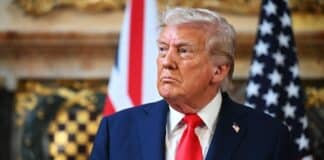President Trump reduced the fentanyl-related tariff on Chinese goods to 10%, down from 20%.
The executive order, issued on November 4, says China has “committed to take significant measures to end the flow of fentanyl to the United States, including stopping the shipment of certain designated chemicals to North America and strictly controlling exports of certain other chemicals to all destinations in the world.”
In a separate order, President Trump declared that the United States will “maintain the suspension of heightened reciprocal tariffs on imports of the PRC” until November 10, 2026.
The arrangement follows the PRC committing to “postpone and effectively eliminate the PRC’s current and proposed coercive global export controls on rare earth elements and other critical minerals, and address Chinese retaliation against United States semiconductor manufacturers and other major companies in the semiconductor supply chain.”
China will further purchase U.S. agricultural exports and has committed to “suspend or remove many retaliatory actions against the United States, including suspending tariffs on a vast swath of United States agricultural products until December 31, 2026.”
Last month, President Trump threatened to impose 100% tariffs on Chinese goods in response to Chinese export controls. He posted on Truth Social: Don’t worry about China, it will all be fine! Highly respected President Xi just had a bad moment. He doesn’t want Depression for his country, and neither do I. The U.S.A. wants to help China, not hurt it!!!”
After stocks dropped in reaction to Trump’s comment, Treasury Secretary Scott Bessent said, “If we have to take strong measures against the Chinese, it won’t be because the stock [market is down] or we won’t negotiate because the stock market’s going down. We will negotiate because we are doing what is best economically for the U.S.”





